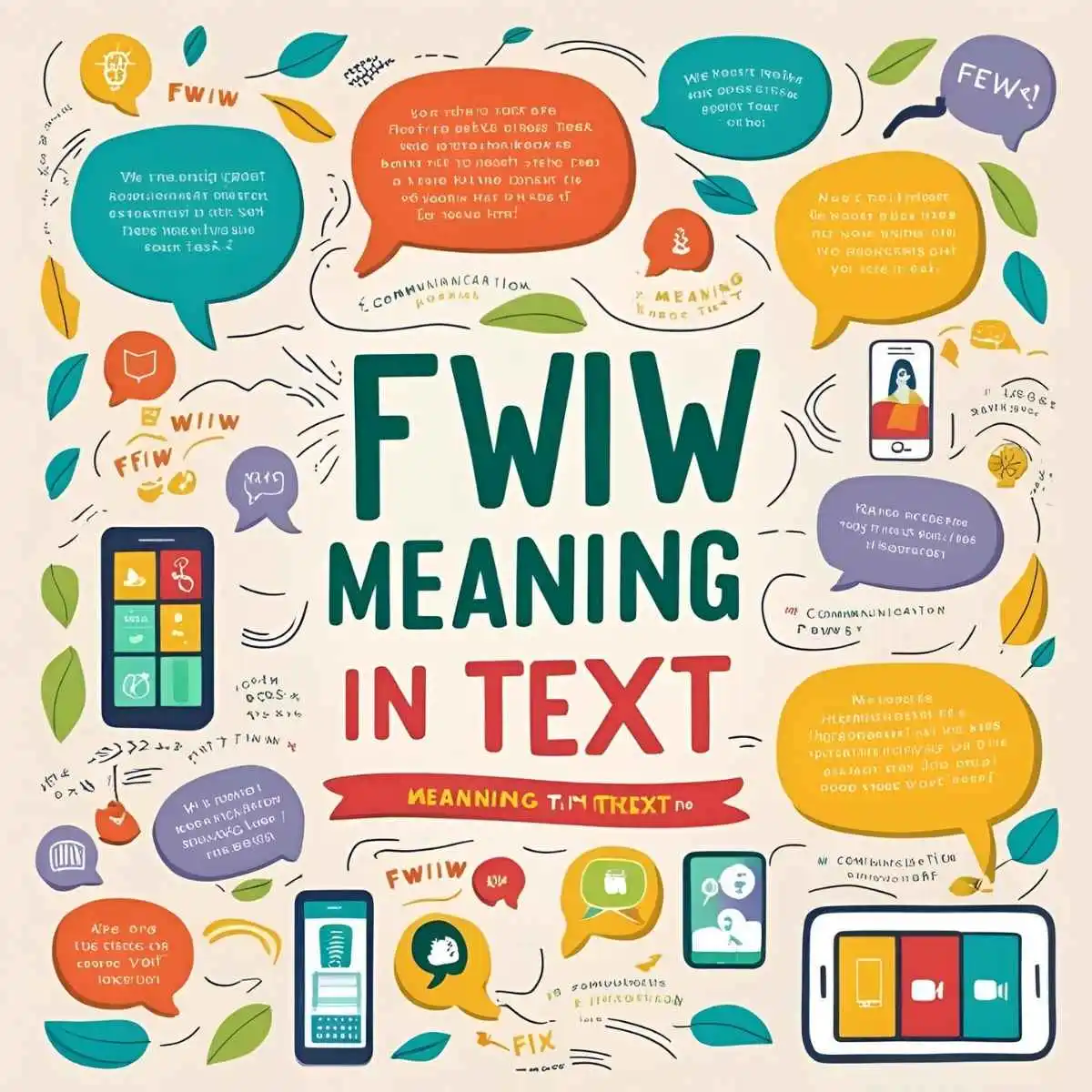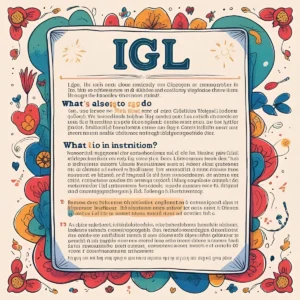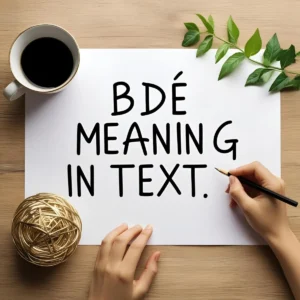Ever seen “FWIW” in a text or online chat and wondered what it means? You’re not alone! This acronym pops up everywhere—from social media to work emails—and understanding it can help you communicate better.
FWIW stands for “For What It’s Worth.” It’s a casual way to share an opinion, suggestion, or piece of information without sounding pushy. People use it to soften their tone, making it great for texting, online forums, and even professional chats.
But why does it matter? In today’s fast-paced digital world, slang and abbreviations save time. Knowing FWIW helps you:
- Decode messages quickly
- Respond appropriately
- Avoid misunderstandings
Let’s break down what FWIW means, where it came from, and how to use it like a pro.
Definition & Meaning
What Does FWIW Stand For?
FWIW = “For What It’s Worth.”
It’s a polite disclaimer before sharing an opinion or advice. It suggests, “Take this as you will—I’m just putting it out there.”
Real-Life Examples
- Texting a friend:
“FWIW, I think you’d look great with bangs!” - Work chat:
“FWIW, the client mentioned they prefer email updates over calls.” - Online debate:
“FWIW, studies show that coffee boosts productivity.”
Key Takeaway: FWIW makes statements feel less forceful and more open-ended.
Background & History
Where Did FWIW Come From?
- Early internet forums (1990s–2000s): Shortened phrases saved typing time.
- Texting & social media: As character limits (like Twitter’s 140) became common, acronyms like FWIW spread.
How Has It Evolved?
Originally used in informal chats, FWIW is now common in:
✔️ Workplace Slack/Teams messages
✔️ Reddit & Twitter discussions
✔️ Casual emails
Unlike LOL or BRB, FWIW keeps a neutral tone, making it flexible for different settings.
Usage in Different Contexts
1. Texting & Social Media
- Friend: “Should I dye my hair purple?”
- You: “FWIW, I think you’d rock it!”
2. Gaming (Discord, Twitch)
- “FWIW, rushing mid is a bad idea.”
3. Professional Settings
- “FWIW, the deadline could be moved up if we adjust the timeline.”
Common Misconceptions
❌ Myth: FWIW is rude or dismissive.
✅ Truth: It’s humble—like saying, “This might not matter, but…”
❌ Myth: Only young people use it.
✅ Truth: It’s widely used across ages in digital communication.
Similar Terms & Alternatives
| Term | Meaning | Best Used When |
| IMHO | “In My Humble Opinion” | Sharing personal views |
| FYI | “For Your Information” | Giving neutral info |
| BTW | “By The Way” | Adding side notes |
How to Respond to FWIW
- Casual: “Thanks, I’ll think about it!”
- Funny: “FWIW, your FWIW was worth a lot!”
- Professional: “Noted—appreciate the insight.”
Regional & Cultural Differences
- US/UK: Very common.
- Non-English countries: Less known; may confuse some.
Is FWIW Offensive?
No, but tone matters. If used sarcastically (“FWIW, nobody asked”), it can sound rude.
Professional Suitability
Avoid in formal reports, but okay in casual work chats.
FAQs
1. Is FWIW rude?
No—it’s neutral unless tone suggests otherwise.
2. Can I use FWIW in emails?
Yes, but sparingly.
3. What’s the opposite of FWIW?
Strong phrases like “Listen, this is important…”
Conclusion
FWIW is a handy acronym that softens opinions. Now that you know its meaning, history, and best uses, you can text, tweet, and chat with confidence!


